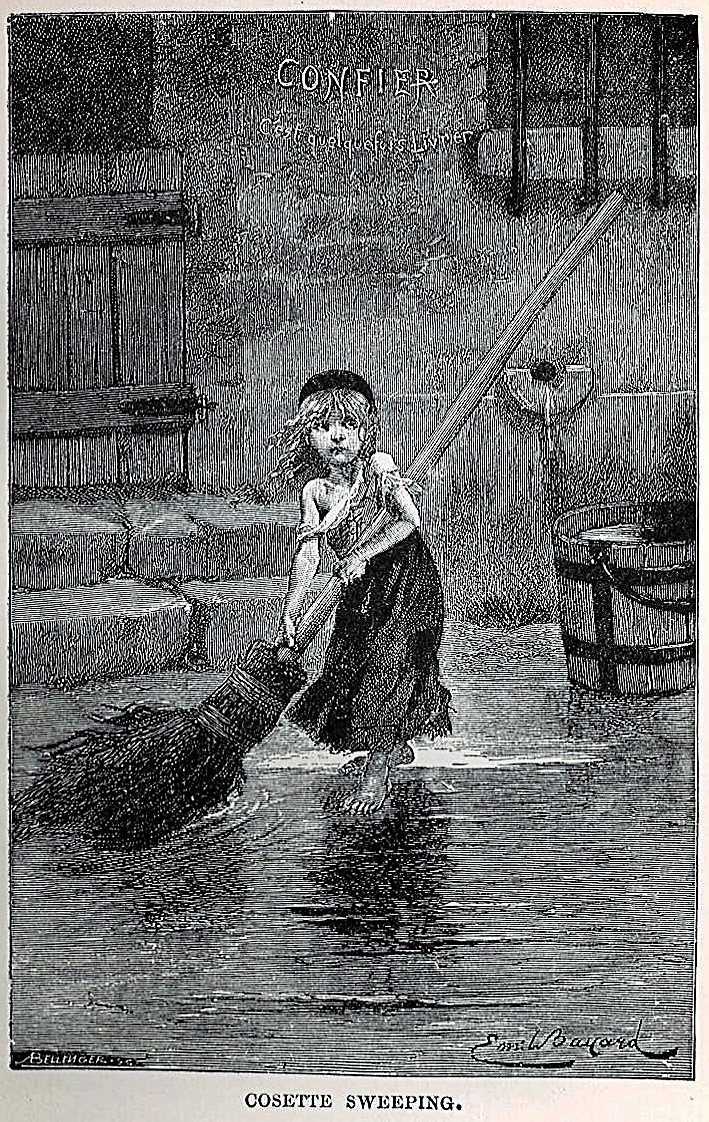"This [my comment: the British unrest] is not a political rebellion; it is a mollycoddled mob, a riotous expression of carelessness for one's own community. And as a left-winger, I refuse to celebrate nihilistic behaviour that has a profoundly negative impact on working people's lives. Far from being an instance of working-class action, the welfare-state mob has more in common with what Marx described as the lumpenproletariat." (Emphasis added)
Except for the "mollycoddled" and "welfare-state mob" things, Brendan O'Neill, who authored that piece, is right on the money there.
Note the word "lumpenproletariat" above. Contrary to widespread belief, Marx never thought there were only two classes:
"Of all the classes that stand face to face with the bourgeoisie today, the proletariat alone is a really revolutionary class. The other classes decay and finally disappear in the face of Modern Industry; the proletariat is its special and essential product." (See here)
Lumpenproletariat (also the "dangerous class") is a term used by Marx to collectively describe the bottom-most layer of society; in Marx's words: the "refuse of all classes" (refuse in the same sense that guts and bones are the refuse from a cow's carcass).
You see, Marx wasn't particularly charitable or even sympathetic towards the lumpenproletariat.
Think, for instance, of individuals who neither own capital, nor can insert themselves in the labour market.
Reduced to mere immediate physical survival (and in Marx's time, they had no social security) these individuals tended to lack class consciousness and often resorted to criminality: "vagabonds, discharged soldiers, discharged jailbirds, escaped galley slaves, swindlers, mountebanks, lazzaroni, pickpockets, tricksters, gamblers, maquereaux [pimps], brothel keepers, porters, literati, organ grinders, ragpickers, knife grinders, tinkers, beggars". (See here)
What distinguishes them from the proletarians is not necessarily poverty, but whether or not they make a living by selling their labour.
Joan Robinson put this in a more sober way: "the misery of being exploited by capitalists is nothing compared to the misery of not being exploited at all". (See here)
| M. Jauvert arrests Fantine. [1] |
So, if the proletariat is capitalism's "special and essential product", the lumpenproletariat is an unavoidable by-product.
In this, Marx was painfully wrong and much too optimistic: in his view, reflected in the paragraph above, lumpenproletariat and the other classes were considered essentially a temporary anomaly, to be found only in the still developing capitalism, which Marx knew.
O'Neill, over one hundred years after Marx's death, rightly recognizes that the lumpenproletariat is far from extinct. Still, he fails to draw the logical conclusions from this:
"What we have on the streets of London and elsewhere are welfare-state mobs. The youth who are 'rising up' - actually they are simply shattering their own communities - represent a generation that has been more suckled by the state than any generation before it."
 |
| Cosette, 1862. Emile Bayard. [2] |
They are not "rising up", true. But it's not abundance that produces envy and leads to theft and robbery. You don't need to be a Marxian scholar to know it: you might be jealous of a clean set of clothing, if you are dressed in dirty rags; nobody wearing an Armani suit is jealous of the old homeless bugger's dirty, stinking clothes.
Nor is tender care that produces anger and violence.
O'Neill, a self-described "left-winger", should know better.
O'Nell rightly accuses the rioters for "shattering their own communities".
However, wasn't Baroness Thatcher (whom I believe was his compatriot), who famously decreed that community, society and solidarity were abolished? "They're casting their problem on society. And, you know, there is no such thing as society. There are individual men and women, and there are families." (See here)
The chronically unemployed, not needed in long-closed factories, the underemployed struggling to make ends meet; the migrants, ethnic minorities, women, young and the over-fifties, who have difficulty finding a stable, well-paid job, those are the human refuse produced by capitalism. And, boy, has capitalism been busy lately!
They are alone, too, as Baroness Thatcher advised.
And they have been left to accumulate, and rot, and ferment, because some metaphysical "Market" will eventually remedy their situation.
And while they await for the "Market", their mere presence reduces wages, and scares the hell out of what remains of the working class. The message is clear: this could be you.
The Spanish neologism "precariado" (PRECArio proletaRIADO: precarious proletariat) reflects this fear: those who walk over the tenuous line dividing proletariat and lumpenproletariat.
They also make us feel good about ourselves, decent people, going places: "There! We finally have someone we can look down to".
Deny them access to that modest social improvement represented by being a proletarian, remove their means of survival, and force them and their children to fight and you will not re-establish the capitalist order.
You will not get a workers' revolution, either: you'll only get more crime and mindless violence.
The Prime Minister, Mr. Cameron, said that his was a sick society. He's right.
The rioters and looters are harming those who already have little, that's true. Repress them, if needed. But be aware: excesses will generate more violence.
And know that repression is not enough. These riots are only a symptom of the true sickness: capitalism.
Your choice. Do what you have to do. By warning you, I did my bit.
Image Credits:
[1] M. Javert arrests Fantine. Wikipedia.
[2] Cosette: Wikimedia
Update:
12-08-11: I forgot adding the "welfare-state mob" phrase when I wrote the second paragraph.
No comments:
Post a Comment